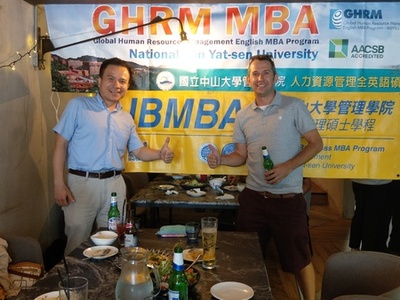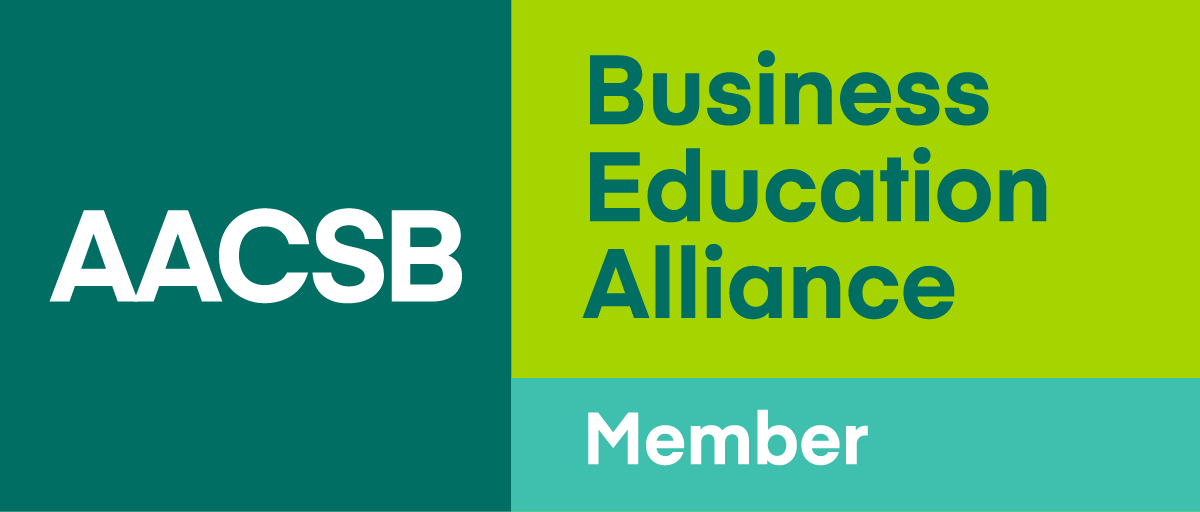【Alumni】Studying in Taiwan, a life-changing experience


Trent Prestegar, an Australian graduate student from the International Business MBA program (IBMBA) of National Sun Yat-sen University (NSYSU), is currently working as a product marketing manager for a large Taiwan networking company, D-Link. He described his study in Taiwan as a life-changing experience.
Motivation
After graduating from a university in Australia and working for around one year in the Economic Development Department of the State Government in Melbourne, Australia, Trent decided to learn Mandarin and moved to Taiwan. However, he ended up spending 2.5 years pursuing an MBA degree at NSYSU due to several factors including excellent reputation of the university, the high living standard in Taiwan, high-cost performance ratio in terms of tuition fees, and abundant scholarship.
Before making up his mind, Trent had the idea that he would probably stay and work in Asia in the future, so obtaining an MBA in Taiwan would be a plus for his career development. Besides, Trent also consulted many friends and alumni, and they all recommended NSYSU and the IBMBA program. At the time, NSYSU also offered financial support for international students who were enrolled in the IBMBA program, which made his choice even more natural.
Experiences in Taiwan
Many great people were met during Trent’s stay at NSYSU, including international students, local students, and faculties, and many of them are still in contact. They have become precious assets in his professional career. The campus of NSYSU is one of Trent’s most significant memories of his time of the study. The seaside location and scenery make it a very comfortable place to be and help to make studying more enjoyable. If ever he felt stressed due to the heavy course load, Trent would just go outside and look at the beautiful sceneries around the campus, which helped him relax and re-focus his mind.
Studying in Taiwan gives me a perfect understanding of how business is done in Taiwan compared to other countries, said Trent. Many Taiwanese companies need talented professionals to help them with their overseas operations, so Taiwanese university graduates have a good advantage in that regard. They can help bridge the gaps between Taiwan and overseas markets. According to Trent, having an NSYSU MBA degree on his resume was very helpful when he started his career in Taiwan.
Currently, Trent is responsible for creating go-to-market campaigns for consumer products used by regions around the world to launch new products to the market. He was also responsible for organizing and attending the company’s presence at large trade shows such as CES (Consumer Electronics Show). Now, one of the most essential things Trent is still doing is continue to learn Mandarin, as it not only helps in everyday life but gives him a much better understanding of the local Taiwanese culture. Once one has a good understanding of the language, you can learn so much more about everything else in Taiwan, including the people, food, pop culture, history, religion, etc.
Opportunities await
To give international students recommendations to pursue degrees or start their careers in Taiwan, Trent shared the following two tips:
1. Expanding your networks: Getting started in your career as a foreigner in Taiwan can be very difficult. Companies do not always know how to look for foreign talents when they need them, and foreigners also do not know where to look for jobs. Studying in Taiwan helps connect you with many professionals from all industries, which can be very useful with job hunting in the future. Getting your first job or a new job can be worked through a reference or a contact by the people you networked. You never know who will approach you and offer an opportunity.
2. Studying Mandarin while you are pursuing a degree – Although your future job might not force you to speak Mandarin daily, having some proficiency in the language will give you a definite advantage when looking for a job. Not only does Mandarin proficiency show your commitment to your life and career in Taiwan, but it also helps you interact better with your colleagues in both professional and social settings. Being able to at least introduce yourself in Mandarin in job interviews gives you the edge over other candidates.
When coming to the end of the interview, Trent was asked to use a word or a phrase to describe his experiences of studying and working in Taiwan, he thought for a while and firmly replied, “Life-changing!” with a smile on his face.




